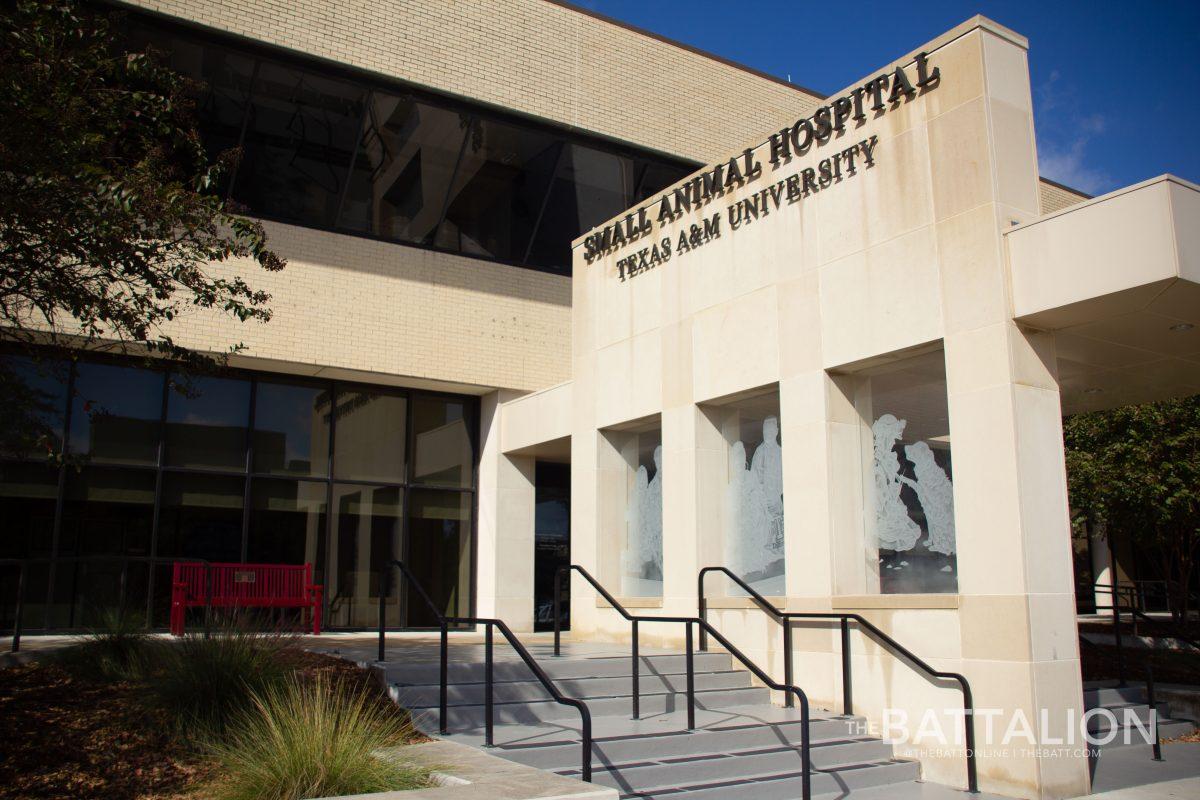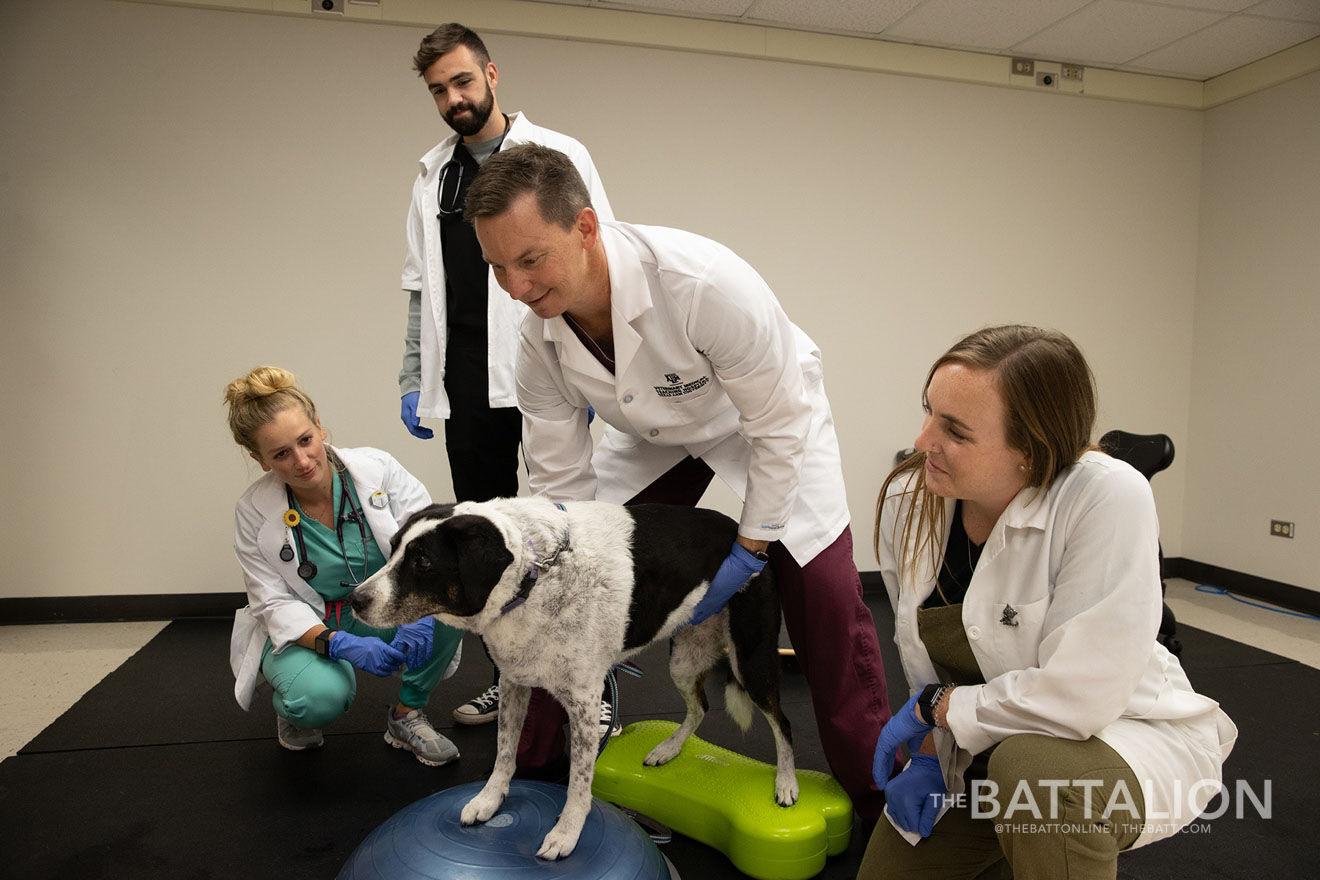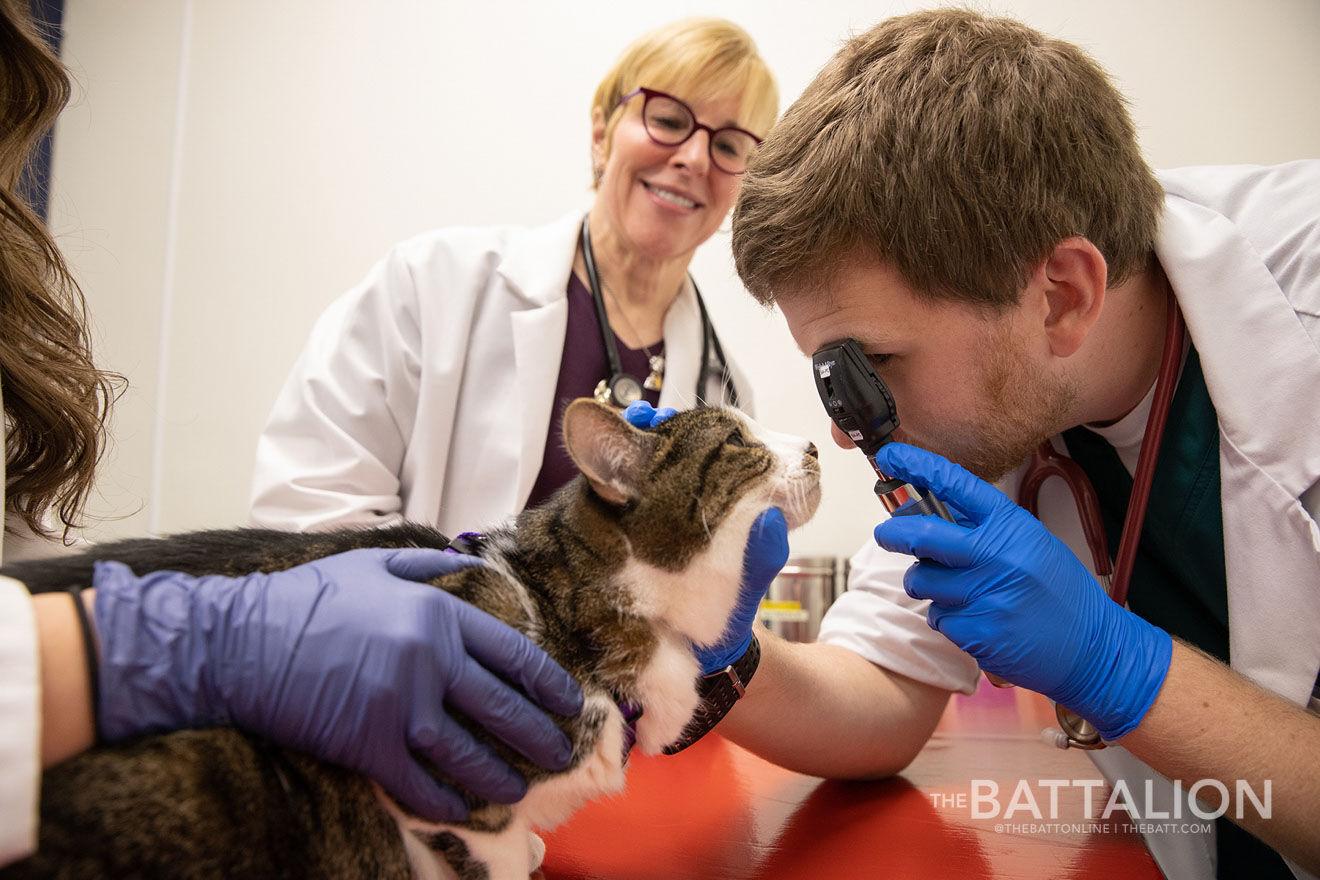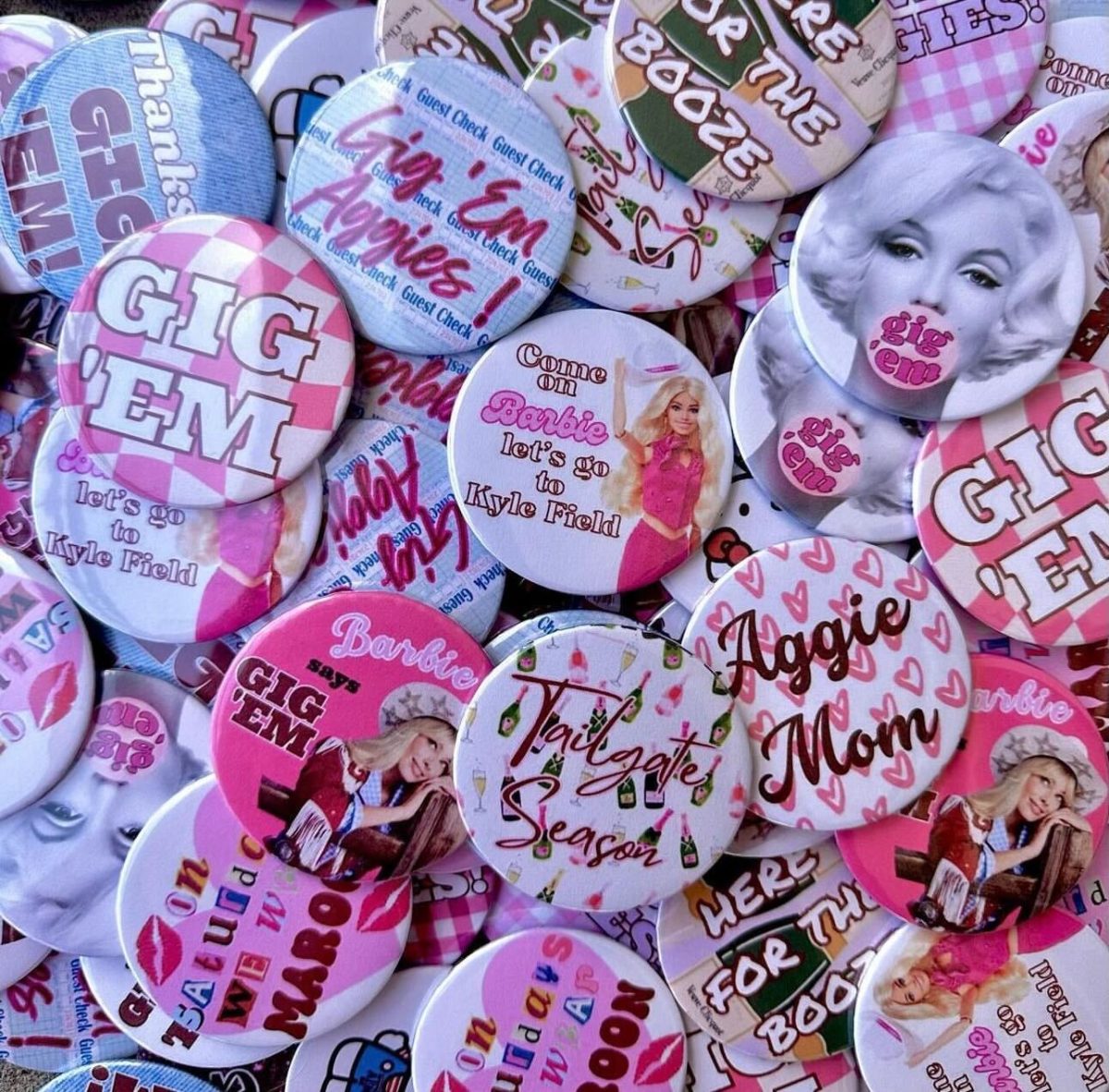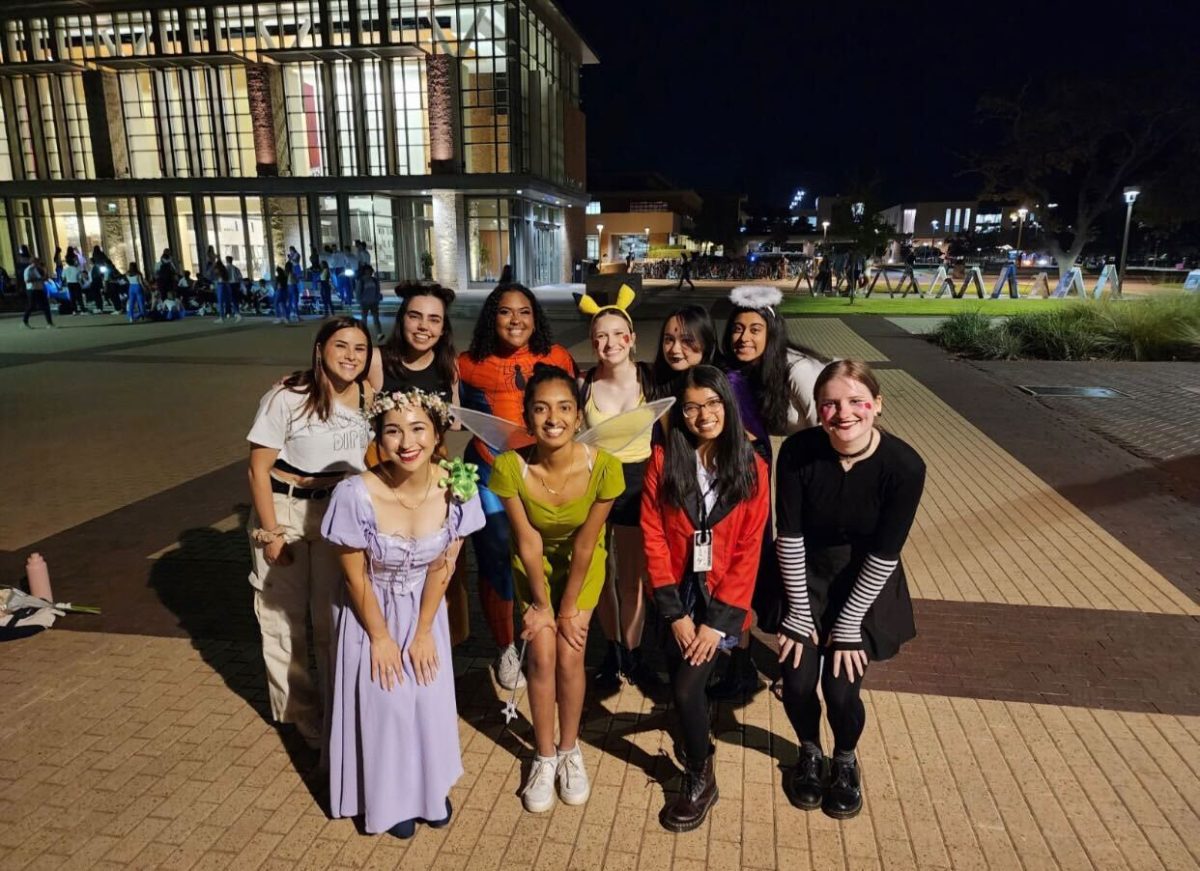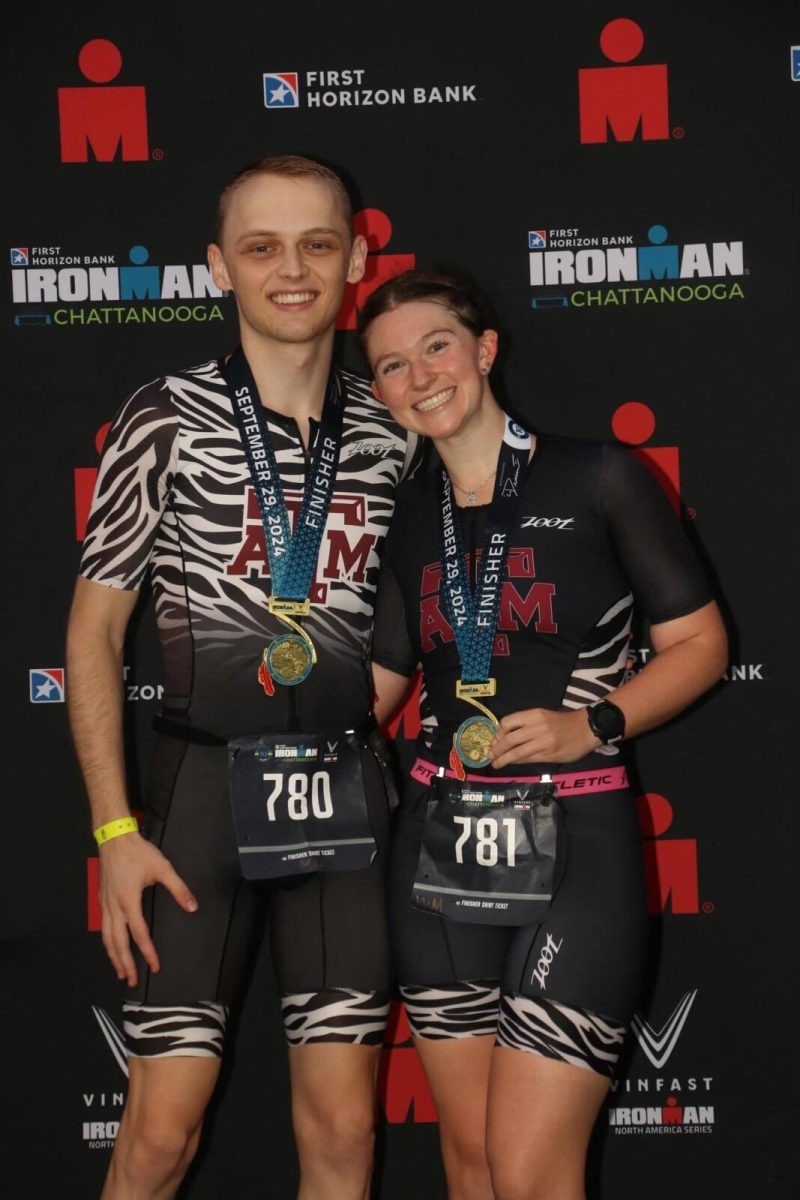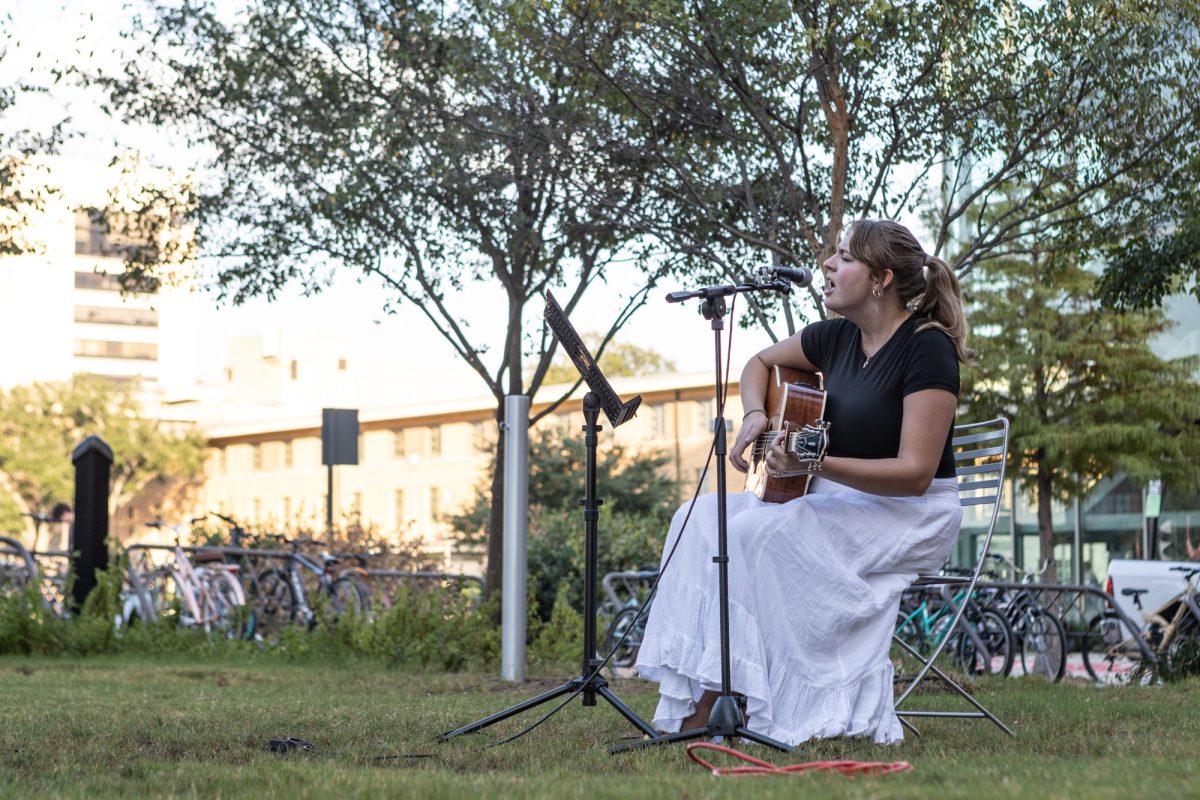Texas A&M’s Small Animal Hospital marries a nationally recognized standard of care to a collaborative learning environment to provide the best treatment possible.
Seeing over 20,000 patients a year, the hospital’s patient care teams pass a wealth of knowledge from faculty through residents, technicians, nursing staff and fourth-year veterinary students, and have launched projects to reach the most disadvantaged and overlooked patients in the broader community.
Marketing and outreach program manager Traci Hansen said veterinarians from all across Texas, and even other states, refer their four-legged patients to the Veterinary Medical Teaching Hospital, or VMTH, for specialized care. Some owners will drive hours from all parts of the state to seek care, Hansen said.
“There are two different, distinct hospitals, one for all small animals — cats, dogs, bunnies, whatever — and then the large animals,” Hansen said. “I break it down because even just talking with friends who aren’t familiar with what I do, I say there’s the small and large animal hospital and they are thinking great dane versus chihuahua.”
One initiative which sets the VMTH apart from other veterinary practices is its outreach projects, one of which will be launching in January. Dr. Lori Teller, a clinical assistant professor of telemedicine, served in private practice for 28 years before joining the VMTH in 2018. Her role is twofold, she said, teaching fourth-year veterinary students about general practice in the professional world, while simultaneously developing the telemedicine program. Telemedicine has become crucial to the VMTH’s outreach in recent years, Teller said.
“We identify people that do not have the resources to access regular veterinary care, frequently for financial reasons or transportation reasons,” Teller said. “Perhaps because they’re elderly and they can’t get to where they need to be … or they may live in an area where there’s not a veterinarian to provide care.”
In the fall of 2020, Teller arranged a pop-up veterinary clinic in Brenham for low-income pet owners. The VMTH team provided vaccinations, tested animals for internal and external parasites, treated minor wounds and worked to cure skin and ear infections, Teller said. After treatment, the team followed up with telemedicine until the spring semester of 2021. The VMTH has done the same in the city of Caldwell and is preparing for the next project in Bastrop County.
Teller said the patients and their owners are predominantly reached through an appeals program or groups such as the United Way Assistance Program. Beyond the learning environment for veterinary students, the VMTH has also taken the opportunity to incorporate youth in local 4-H clubs and Future Farmers of America.
“One of my favorite [stories] from the Brenham project was a woman in a wheelchair who had three dogs,” Teller said. “We started them on medication to treat the parasites, the fleas and the heart worms, and she sent us the most heartwarming message. Remember, this was peak-COVID[-19], so she couldn’t even get out of her house. She was just like, ‘You have saved my life. I have been so worried about how I would care for my dogs. And I can sleep so much easier every night now knowing that they have been taken care of and will continue to be healthier pets because of it.’”
Teller said she teared up at the message and knows the experiences have meant a lot to students, too.
“It’s a pretty amazing educational opportunity for our students as well, because they’re working with a population of pet owners that they’re not normally exposed to at the vet school,” Teller said. “I think it gives them a broader perspective of pet owners, and that there are ways to help them even if [the owners] don’t have lots of funds to to be able to expand on taking care of their pets, that there are still ways that we can help provide care for the pets and alleviate some of the stress and concerns that the owners have.”
For the average animal owner, Teller emphasized the importance of preventive care, which is the VMTH’s focus when going out into the aforementioned communities. Not only vaccinations, but also seemingly inconspicuous issues such as a proper weight and diet, Teller said.
“The No. 1 problem that we diagnose is obesity,” Teller said. “And so especially for people who may not be able to afford hip replacements or crucial surgery or manage diabetes, so much of that can just be avoided by keeping their pet at its proper weight. Yeah, it’s not glamorous, but it’s necessary.”
A recent standout patient of the Small Animal Hospital’s oncology unit is one Major Paddy. An English springer spaniel who is, yes, a Major in the U.S. Army and has served as a CIA bomb dog, oncology resident Christian Stocks said.
“He is obviously very well trained and has this ability to be very focused, which isn’t surprising, but it’s different than a lot of our patients,” Stocks said. “He’ll come and bring you the toy, lay it down in between your feet. And he won’t make a movement, he won’t do anything, he’ll just sit and wait for you to throw it, and he’ll do the exact same thing; he’ll do that over and over and over.”
Major Paddy has a disease called cutaneous lymphoma, an aggressive skin cancer that can spread to other parts of the body. Stocks said Paddy’s treatment serves as an example of how the VMTH brings the innovations in human care into the world of veterinary medicine. In Paddy’s case, his skin cancer may eventually need radiation treatment, which provides an opportunity to employ a specialized, 3D printed support mold for targeting his skin.
“In the canine world, there are often a prominent few case reports, but no large research behind it,” Stocks said. “So it is a newer field, mainly because of access and the resources that we have to put into something like this. So luckily, you know, Major Paddy has the disease that we can use this in and an owner that has kind of good access to 3D printing. It’s not something that we use very often at all, but hopefully something that we’re hoping that we can use to write a case report and further this very unrecognized field of radiation oncology.”
For Major Paddy and all other furry patients, one of the best qualities of the VMTH’s services is the ability to implement all units in concert, Stocks said. Cases are managed alongside not only the medical and surgical units of oncology, for example, but also the cardiology and ophthalmology services.
“We have this ability to treat cancer, but if these patients have other issues, or if they experience side effects, they’re getting the highest kind of quality of care from different specialists,” Stocks said.
Health systems are all interrelated, so the collaboration and affinity for research within VMTH allows high quality treatment strategies — that are a little more advanced — to be developed, Stocks said.
“It’s truly a team effort,” Teller said. “The primary care services in the college and in our ancillary support, like from Tracy [Hansen] in administration, has been tremendous. And it’s a wonderful way for us to [give] back to the community. It really makes us feel good about what we do every day. And of course, we would certainly accept donations from anybody that wants to donate as well, to keep doing what we’re doing.”
Best of Aggieland: Comprehensive care for companions
January 20, 2022
Photo by Photo by Cameron Johnson
Texas A&M’s Small Animal Hospital is a state-of-the-art veterinary care facility which works to treat pets and train future veterinarians.
0
Donate to The Battalion
Your donation will support the student journalists of Texas A&M University - College Station. Your contribution will allow us to purchase equipment and cover our annual website hosting costs.



